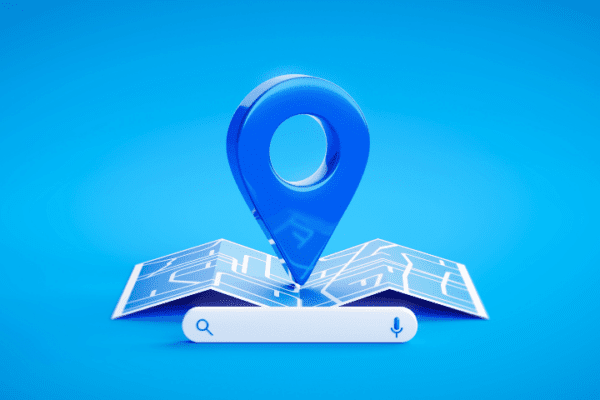Every business, no matter its size, has a local community that it services, which means it’s essential that it features on local searches on search engines. This is where local SEO comes into play. Local search is a term used for when someone searches for businesses or products within a specific location. You might have done it on holiday when you were looking for a restaurant or car park. Local searches are related to a particular area, which means that, even if your organic SEO isn’t great, you can still pop up at the top of any results.
Local SEO v Organic SEO
Before we start, we need to clarify that both of these are important but work in different ways. Organic SEO is designed to get you high up in ranked searches and uses a combination of carefully selected keywords, good website user experience, and decent links, to name just a few.
Local SEO works differently (for this example, we’re going to focus on how Google works as it’s the most popular search engine). Local SEO functions using Google Maps and relates to the target phrases and additional information your business has in its Google My Business listing (also known as Google Profile). When people search for businesses and services near them, the Google Maps listings will pop up first, which means that if you get your Google My Business information right, you’ll feature higher. In addition, the more excellent reviews you have, the higher you’ll rank.
How to boost your local SEO
Google My Business, also known as Google Profile.
We cannot express more clearly how important Google My Business is for Local SEO. The platform has recently fully integrated itself into Google Maps, meaning for location-specific SEO that works, you need to claim or create a listing. In addition, having an up-to-date Google My Business account also helps with organic website rankings. So, to put it simply, if your business has a good Google My Business listing, more people will click through to your website, thereby improving your organic ranking at the same time.
Optimise your website for mobile phones.
It stands to reason that most local searches will happen on mobile devices; therefore, it also makes sense to have a website optimised for mobile phone use. A few years ago, Google listed mobile phone optimisation as a critical factor in ranking websites; no optimisation meant a website ranked lower, but it’s also common sense. If a potential customer is looking at a website on a mobile phone screen, it should be readable. If it isn’t, they’ll go somewhere else. So the vital thing to bear in mind is that you need to make it as easy as possible for potential customers to buy from you.
Is all your business’ online information correct?
In marketing, we call this a ‘digital footprint’, and it is basically all the information about your business that is floating around on the internet; opening hours, price lists, email addresses, and locations. If the information about your business is inconsistent across lots of sources, search engines and the public will be less likely to trust it. It’s incredible how many companies, like Yell, for example, pull information from websites and then leave it there to go out of date.
Track local positions using custom keywords.
As we said earlier, although Local SEO and Organic SEO work differently, they also go hand in hand. A good way of checking to see how your website is ranking is to track it using a custom set of keywords. These will usually be related to the service you provide and your locality. Deciding on which keywords to choose can be a difficult job, which is where we can help (we can help with the Google My Business and the digital footprint parts too). Not Another Marketing Agency loves digging into analytics and keyword searches, and there’s nothing we enjoy more than seeing a client starting to move up the rankings. So if you’d like a chat about how to get your business more local online coverage, we’d love to hear from you.






